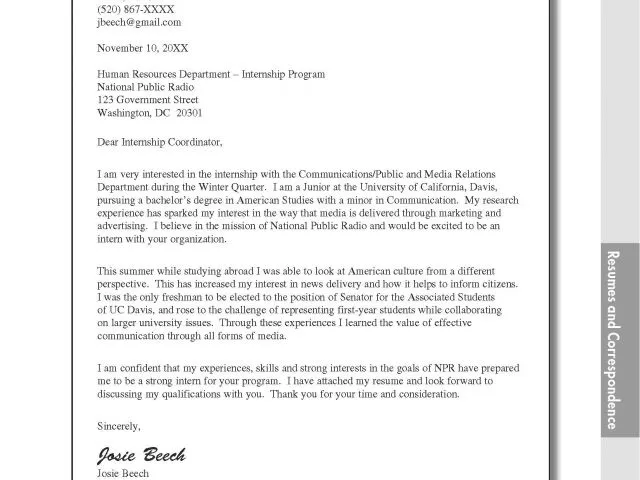What is an Internship Cover Letter (Explained)
An internship cover letter is a crucial document that accompanies your resume when applying for an internship. It serves as your initial introduction to the hiring manager and provides an opportunity to showcase your personality, skills, and enthusiasm for the position. Unlike a resume, which provides a factual overview of your qualifications, a cover letter allows you to express your interest, explain why you’re a great fit, and highlight specific experiences and achievements that align with the internship’s requirements. It’s your chance to make a strong first impression and persuade the employer to consider you for an interview. A well-crafted cover letter demonstrates your communication skills, attention to detail, and genuine interest in the opportunity. Think of it as a personal narrative that complements your resume, providing context and depth to your application.
Why a Great Cover Letter Matters for Internships
In the competitive landscape of internship applications, a great cover letter can make all the difference. It’s your chance to stand out from the crowd and demonstrate why you are the ideal candidate. A compelling cover letter immediately grabs the reader’s attention and convinces them to delve deeper into your qualifications. It allows you to elaborate on your skills and experiences in a way that a resume cannot. By highlighting relevant coursework, projects, and accomplishments, you can demonstrate your ability to contribute to the company and make a real impact during your internship. Moreover, a well-written cover letter shows that you’ve taken the time to research the company and tailor your application specifically to their needs, which is a significant indicator of your genuine interest. A poorly written or generic cover letter, on the other hand, can immediately disqualify you from consideration, so invest time in creating a strong document.
Key Components of a Successful Internship Cover Letter
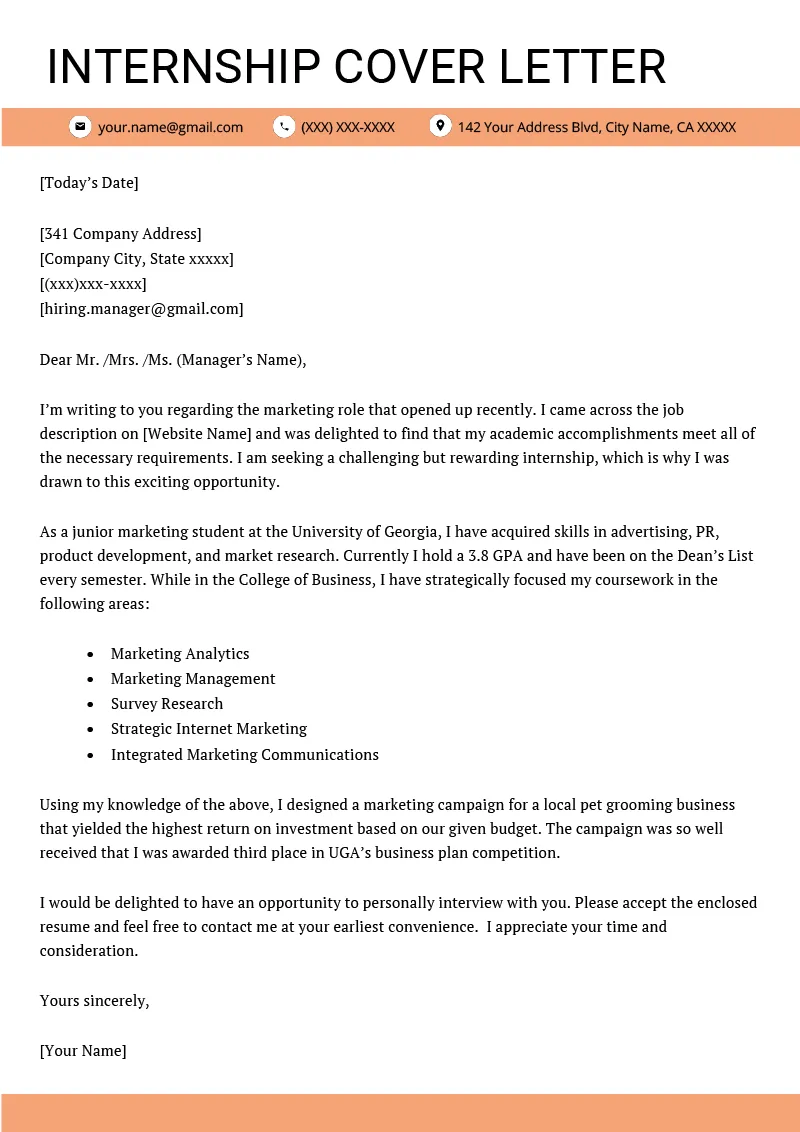
A successful internship cover letter comprises several essential components, each designed to convey your qualifications and enthusiasm effectively. The structure should be clear, concise, and easy to follow. Start with your contact information, date, and the recipient’s details. The opening paragraph should immediately capture the reader’s attention by expressing your strong interest in the internship and mentioning where you learned about the opportunity. The body paragraphs are where you highlight your skills and experience, tailoring them to match the specific requirements of the internship. Be sure to quantify your achievements whenever possible. The closing paragraph should reiterate your interest, express gratitude for their time, and include a call to action, such as stating your availability for an interview. Remember to proofread meticulously to avoid any errors in grammar or spelling, ensuring your letter is professional and polished. Proper formatting contributes to readability.
Contact Information, Start Here
Begin your cover letter by including your contact information at the top. This should include your full name, phone number, professional email address, and optionally, your LinkedIn profile URL. Make sure the information is accurate and up-to-date. This allows the hiring manager to easily reach out to you if they’re interested in scheduling an interview. Using a professional email address is crucial; avoid using nicknames or unprofessional email addresses. Formatting this section clearly and consistently with the rest of your document is also important, helping to create a polished and professional presentation that shows your attention to detail. Ensure your phone number is active and that your voicemail is set up to greet potential employers in a professional manner. This is the first piece of information a hiring manager will see, so make a good first impression.
Your Name and Contact Details
Place your full name prominently at the top of your cover letter. Beneath your name, provide your phone number and a professional email address. Consider including a link to your LinkedIn profile, particularly if it’s well-maintained and showcases your professional experience and skills. This section is essential for the employer to easily contact you. Ensure that your email address is professional and appropriate; avoid using casual or informal addresses. The presentation of your contact information should be clean and clear, using a readable font and adequate spacing. Consistent formatting across all your application materials, including your resume, further enhances your professionalism and attention to detail. A well-presented contact section makes it simple for the hiring manager to reach out and invite you for an interview.
Date and Recipient Information
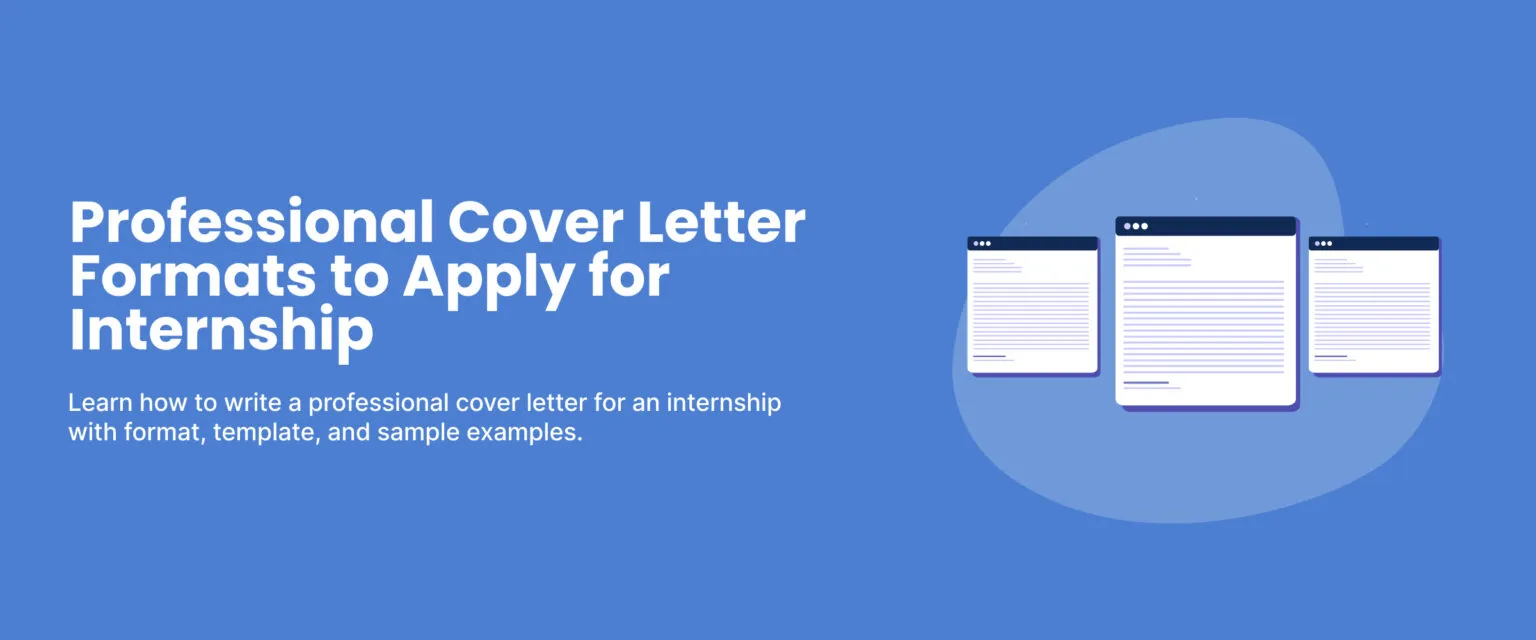
After your contact information, include the date, followed by the recipient’s information. If you know the hiring manager’s name, use it to personalize your letter. Address the letter to ‘Dear Mr./Ms. [Last Name]’ whenever possible; this shows that you’ve taken the time to research the company and tailor your application. If the name isn’t available, use ‘Dear Hiring Manager’ or ‘Dear [Department Name] Team.’ Next, include the recipient’s title, company name, and address. Make sure you spell the name and company details correctly. Properly addressing the letter not only shows respect but also increases the likelihood of catching the hiring manager’s attention. This careful attention to detail will set you apart from other applicants.
The Opening Paragraph (Grab Attention)
The opening paragraph is your chance to make a strong first impression. Start by stating the specific internship you’re applying for and where you learned about the opportunity. Briefly express your enthusiasm for the position and the company. Make it clear that you understand the role and are eager to contribute. A strong opening paragraph immediately engages the reader and makes them want to continue reading. Avoid generic statements and instead, show genuine interest and tailor your introduction to the specific requirements of the internship. You can mention something specific about the company that attracts you. This opening section should quickly establish your intent, demonstrating that you’re not just another applicant but a candidate who has carefully considered the opportunity.
How to Start Strong
To start your cover letter strongly, begin with a direct and enthusiastic statement about the internship you’re targeting. Mention the specific position and, if possible, reference where you saw the job posting (e.g., LinkedIn, company website). Express your immediate interest and excitement about the opportunity, showing that you have a real desire to join the team. Tailor your opening to the company and position. If you’ve done your research and understand the company’s mission, briefly mention it to demonstrate your understanding. Focus on the value you can bring. For example, if the internship involves data analysis, state your enthusiasm for the opportunity to utilize your analytical skills to contribute to their goals. This clear and focused opening sets the stage for the rest of your cover letter, making your application stand out.
Highlight Your Interest and Enthusiasm
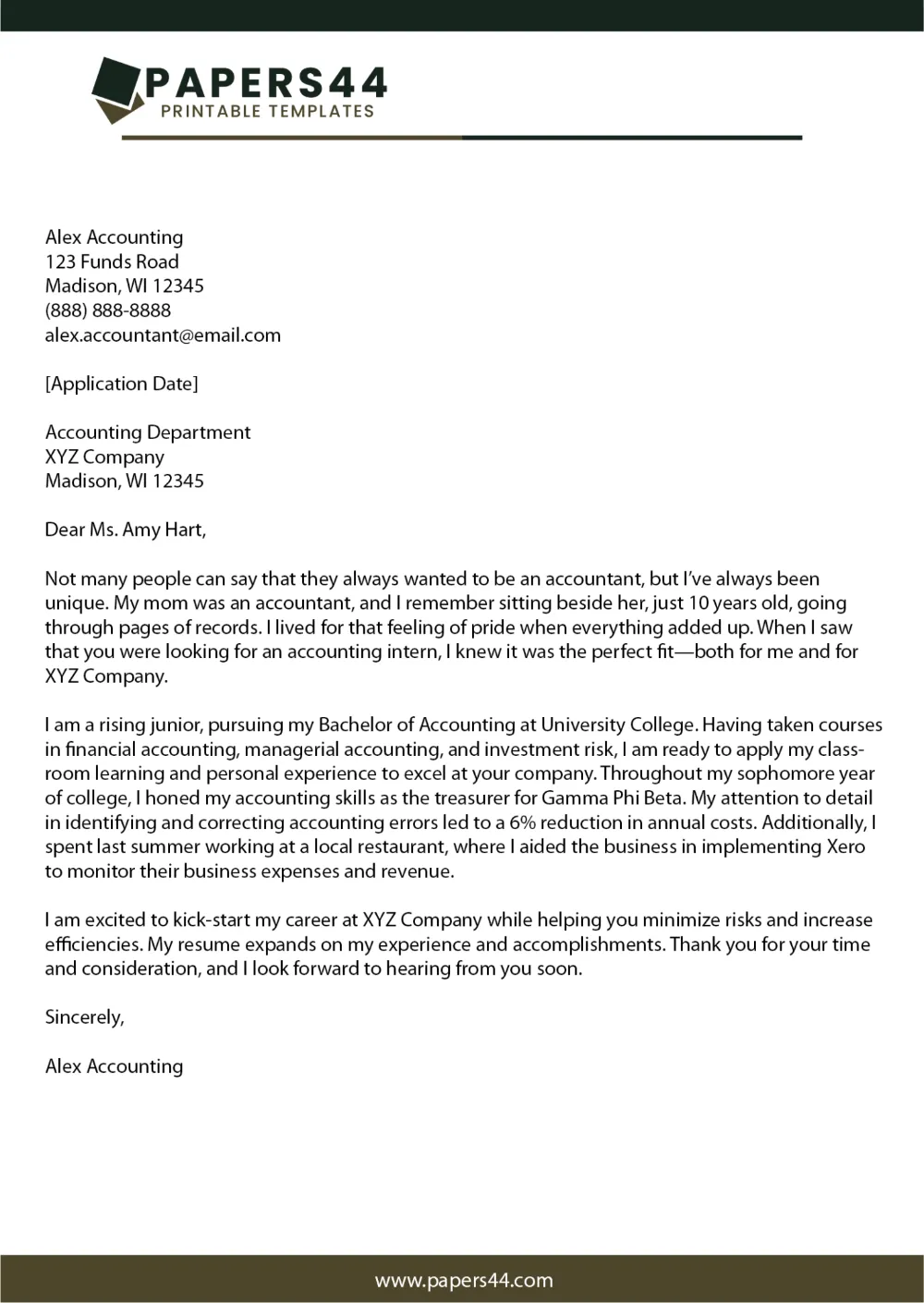
In your opening paragraph, clearly convey your enthusiasm for the internship and the company. Demonstrate that you’ve researched the organization and understand its values and mission. Mention specific aspects of the company that appeal to you, such as their innovative projects, their commitment to sustainability, or their positive company culture. This will demonstrate that you’re not just applying for any job, but this specific opportunity. Express your excitement about the possibility of contributing to the team and learning new skills. A genuine expression of interest makes your application more personal and memorable. This enthusiasm will make your application far more effective and memorable, increasing your chances of moving forward in the hiring process.
Body Paragraphs Showcase Your Skills
The body paragraphs of your cover letter are where you highlight your skills, experience, and qualifications that align with the internship requirements. Use these paragraphs to demonstrate how you can contribute to the company and add value. Instead of simply listing your skills, provide specific examples of how you’ve used them in previous experiences. Quantify your achievements whenever possible, using numbers and data to show the impact of your actions. Tailor your body paragraphs to the specific requirements of the internship and the company’s values. This section allows you to elaborate on your abilities in a way that a resume cannot, showcasing your suitability for the role. Focus on what you can bring to the organization and how you’ll apply your knowledge in a practical way.
Tailoring Your Skills to the Internship
When showcasing your skills, it’s crucial to tailor them directly to the requirements of the internship. Carefully review the job description and identify the key skills and qualifications the employer is seeking. Then, in your cover letter, highlight the skills you possess that match those requirements. Provide specific examples of how you’ve used those skills in past projects, coursework, or experiences. For instance, if the internship requires strong communication skills, describe a situation where you successfully presented information, resolved a conflict, or collaborated with a team. Use the same keywords and phrases from the job description when possible, but always ensure your descriptions are authentic and reflect your actual abilities. This targeted approach shows the employer that you’ve taken the time to understand their needs and that you’re a great fit for the role.
Quantifying Achievements and Experience
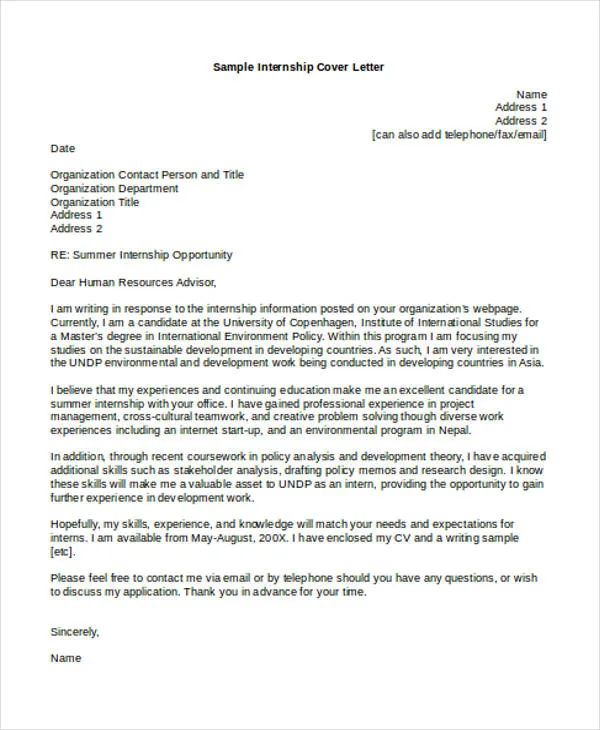
Whenever possible, quantify your achievements and experiences to demonstrate the impact you’ve made. Instead of saying you have ‘strong communication skills’, provide a concrete example: ‘Improved customer satisfaction scores by 15% through effective communication during my internship at X Company’. Using numbers and data paints a clear picture of your abilities and demonstrates the tangible results you can deliver. This approach is particularly effective in highlighting your ability to contribute to the organization’s goals and makes your accomplishments more memorable. Be specific in your examples, providing details that show how you achieved your results. Whether you’re referencing project outcomes, sales figures, or efficiency improvements, quantifying your experiences adds significant credibility to your application and makes your accomplishments stand out.
Highlighting Relevant Coursework
If you’re a student or recent graduate, highlighting relevant coursework is an effective way to showcase your knowledge and skills. Mention specific courses that align with the internship’s requirements. Briefly describe the projects, assignments, and concepts you learned in those courses, demonstrating how they relate to the position. For instance, if applying for a marketing internship, highlight courses on marketing principles, digital marketing, or market research, and then mention any related projects you undertook. This information provides context to your application, providing a clear demonstration of your academic background. This shows that you have already gained a foundation in the necessary skill set. This addition provides a complete view of your qualifications and increases your chances of a positive response.
The Closing Paragraph (Call to Action)
The closing paragraph is your final opportunity to leave a lasting impression. Reiterate your interest in the internship and express your gratitude for the employer’s consideration. Clearly state your willingness to discuss your application further. Include a call to action by indicating your availability for an interview and how you can be contacted. This closing should be polite, professional, and enthusiastic. Make the next steps for the hiring manager clear and easy. The closing paragraph wraps up your cover letter by offering thanks, reiterating your interest, and inviting the reader to take the next step. A strong conclusion shows your interest and makes you appear proactive, increasing your chances of landing an interview.
Expressing Gratitude and Next Steps
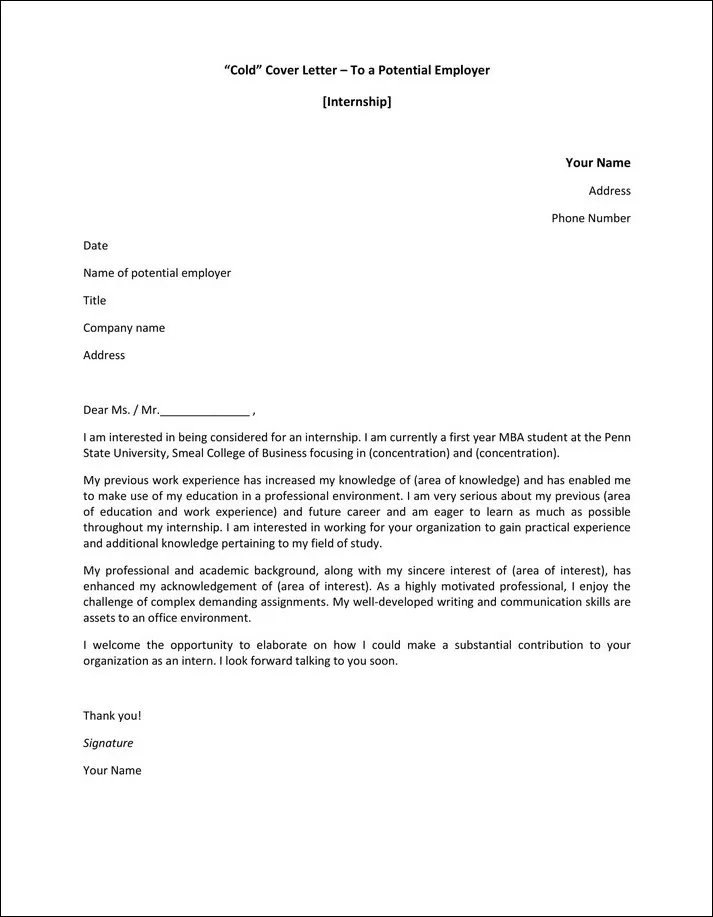
Begin your closing paragraph by expressing your gratitude for the hiring manager’s time and consideration. Thank them for reviewing your application and express your appreciation for the opportunity. Then, reiterate your strong interest in the internship and the company. Reiterate your willingness to discuss your qualifications further, offering to provide any additional information required. End with a clear call to action, stating your availability for an interview and providing the best ways to reach you (e.g., phone number, email address). The goal is to make it as easy as possible for the hiring manager to take the next step. This is the final point in your cover letter where you can convey your enthusiasm and reiterate your eagerness to contribute to the team. Make it easy for them to contact you.
Cover Letter Formatting Best Practices
Proper formatting is crucial for creating a professional and readable cover letter. Choose a clean, easy-to-read font, such as Times New Roman, Arial, or Calibri, with a font size between 10 and 12 points. Use single spacing within paragraphs and double spacing between paragraphs. Align your text to the left and avoid excessive indentation or justification. Ensure your letter is well-structured with clear headings and subheadings to guide the reader. Maintain consistent formatting throughout the document. This attention to detail demonstrates professionalism and helps the hiring manager easily find the key information. Remember that the formatting will make a difference in the hiring manager’s ability to read your letter. Clear presentation is a sign of your attention to detail and professionalism.
Choosing the Right Font and Size
The font and size you choose for your cover letter play an important role in its readability and overall appearance. Select a standard, easy-to-read font such as Times New Roman, Arial, or Calibri. Avoid using overly ornate or distracting fonts. A font size between 10 and 12 points is usually ideal. This size ensures that your letter is easy on the eyes and doesn’t appear too crowded or too sparse. Make sure the font is consistent throughout the entire document. This will increase the chance of the hiring manager reading your cover letter. Ensuring your cover letter is readable is essential, as it will make it easier for the hiring manager to absorb the information. It indicates you pay attention to detail.
Formatting Tips for Readability
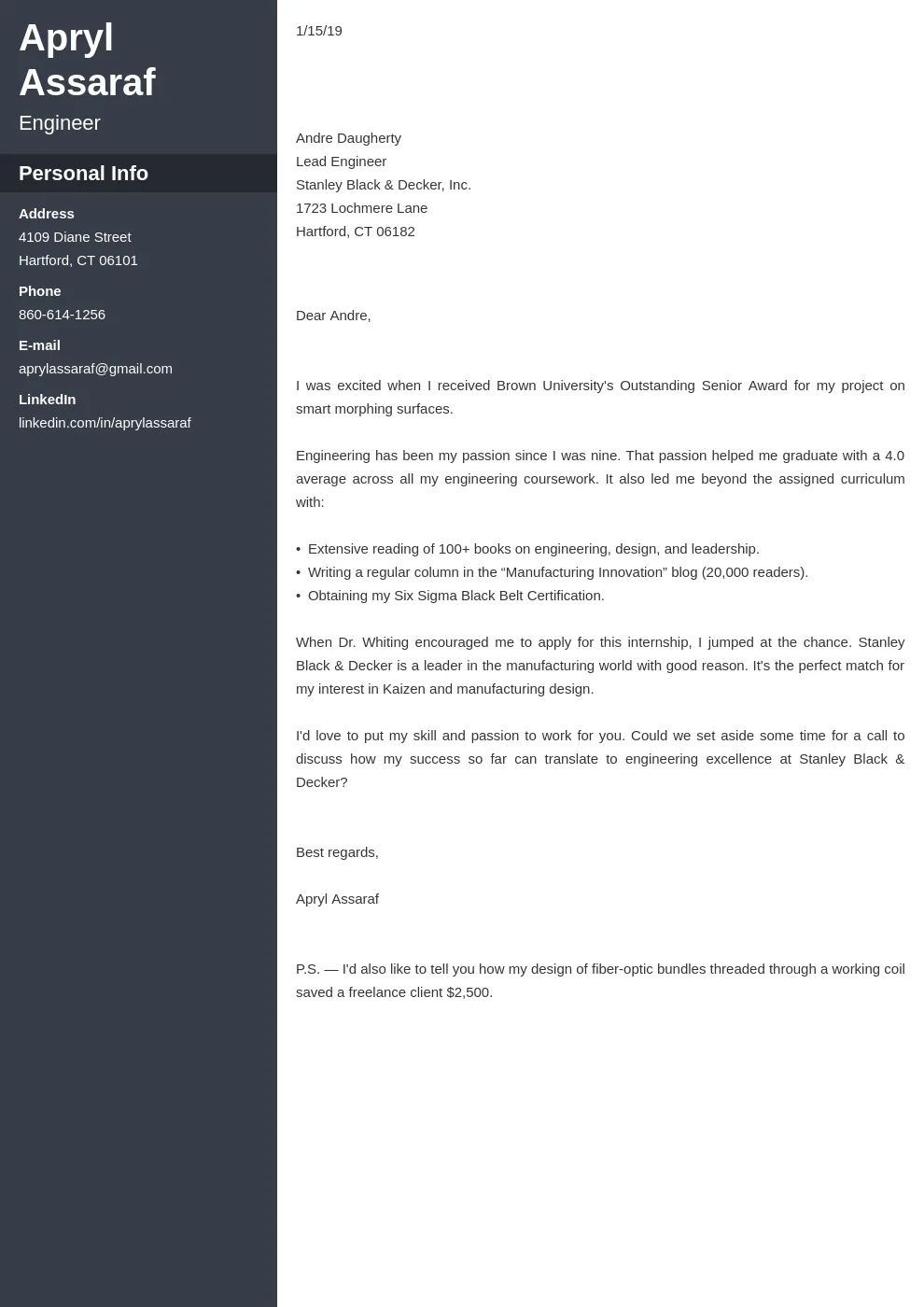
To enhance the readability of your cover letter, use a clear and logical structure. Employ single spacing within paragraphs and double spacing between paragraphs. This creates visual breaks and makes the text easier to scan. Align your text to the left, as this is the standard practice for formal documents. Avoid excessive indentation or justification, as these can make your letter appear cluttered. Use clear headings and subheadings to organize your information and guide the reader through the content. These formatting tips make your cover letter look cleaner and more professional. These tips help to make it easy for the reader to find the most important parts of your application. This will have a direct positive impact on the readability of your cover letter.
Proofreading and Editing Your Cover Letter
Proofreading and editing your cover letter is essential to ensure it’s free of errors and presents you in a professional light. Carefully review your letter for any spelling, grammar, and punctuation mistakes. Check that your sentences are clear, concise, and well-structured. Read your cover letter multiple times, both on screen and printed, to catch any errors. You can also ask a friend, family member, or career counselor to review your letter. This additional perspective can help you identify any weaknesses. Proofreading is essential in order to present yourself as detail-oriented. Make your cover letter perfect by revising multiple times.
Common Mistakes to Avoid
Several common mistakes can significantly hurt your chances of landing an internship. Avoid generic cover letters that are not tailored to the specific internship or company. Steer clear of grammar and spelling errors, as these can make you seem unprofessional. Don’t go on a long list of things without clearly quantifying them. Always be truthful in your application and never exaggerate your qualifications. Also, it’s crucial to avoid unprofessional language, slang, and overly casual tones. These mistakes can make your cover letter look sloppy and signal to the employer that you have not taken the time to properly prepare your application. Take the time to correct these errors to showcase that you are the right fit for the role.
Grammar and Spelling Errors
Grammar and spelling errors in your cover letter can significantly undermine your credibility and professionalism. Always proofread your letter carefully for any mistakes. Use spell-check and grammar-check tools, but don’t rely on them entirely, as they may not catch all errors. Read your cover letter aloud to help identify awkward phrasing or mistakes you might miss. Make sure that you’ve used correct punctuation, proper sentence structure, and consistent verb tenses. Poor grammar creates a negative impression and signals that you’re not attentive to detail. Thorough proofreading is a must. By eliminating these types of errors, you present yourself as someone who pays attention to detail and has strong communication skills.
Generic Cover Letters
Sending a generic cover letter that is not tailored to the specific internship or company is a common mistake that can lead to rejection. Generic letters lack personalization and fail to showcase your genuine interest in the opportunity. Tailor your cover letter to each specific position by researching the company and the internship’s requirements. Highlight how your skills and experience align with the specific needs of the role. Mention specific projects, skills, or company values that resonate with you. Personalizing your cover letter shows that you have taken the time to understand the position and that you’re genuinely interested in the company. Doing this will make you appear to be genuinely invested in this opportunity and set you apart from other candidates who have sent the same letter to multiple opportunities.
Examples of Internship Cover Letters
Reviewing examples of successful internship cover letters is an excellent way to gain insights into effective writing techniques. Pay close attention to the structure, language, and tone used in these examples. Note how they address the specific requirements of the internship and highlight relevant skills and experiences. These examples will provide inspiration, and also demonstrate the importance of adapting your cover letter to the specific opportunity. Analyzing these examples will help you understand how to structure your own cover letter effectively, and to create a persuasive narrative that makes you an appealing candidate. Use these examples to learn how to showcase your qualifications in the best way possible.
Cover Letter Example Engineering Internship
Here’s an example of a cover letter tailored for an engineering internship. In the opening paragraph, the applicant immediately states the specific internship they’re applying for and expresses their enthusiasm for the role and the company. In the body paragraphs, the applicant highlights relevant coursework, projects, and skills, and uses quantifiable achievements. They showcase their experience with engineering software, problem-solving skills, and teamwork abilities. The closing paragraph reiterates their interest, expresses gratitude for the opportunity, and includes a clear call to action, offering their availability for an interview. The applicant’s use of relevant engineering terminology and focus on practical experience demonstrates their understanding of the field and their ability to contribute to the company’s goals. This format is a good example of using relevant terminology to highlight the skills you possess, demonstrating to the hiring manager that you’re a solid candidate.
Cover Letter Example Marketing Internship
Here’s an example of a cover letter tailored for a marketing internship. The opening paragraph expresses interest and mentions where they learned of the opportunity, showing enthusiasm for the marketing field. Body paragraphs highlight skills like content creation, social media management, and data analysis. The applicant provides specific examples and quantifies their achievements. The closing paragraph reiterates their interest, expresses gratitude, and includes a clear call to action for an interview. This example demonstrates the candidate’s ability to align their skills with the internship’s requirements, their passion for marketing, and their strong communication skills. This example shows how to highlight skills and apply them to real-world examples. Demonstrating that you understand the marketing field makes you a much more compelling candidate.
